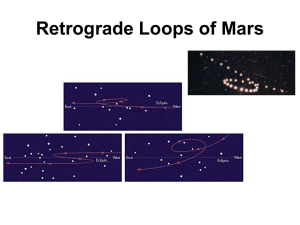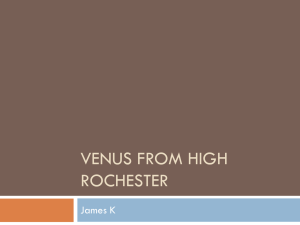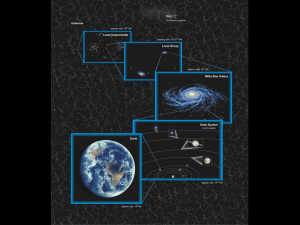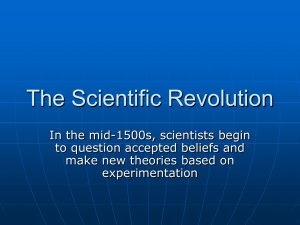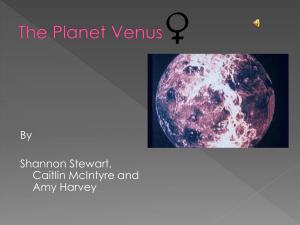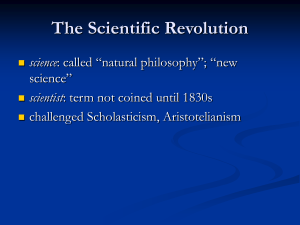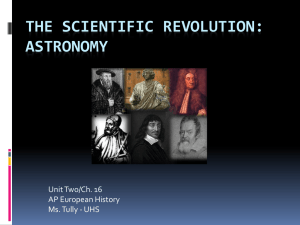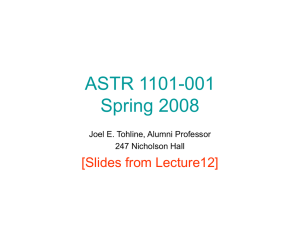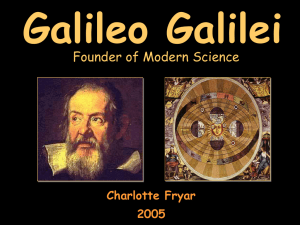Thursday September 8
advertisement
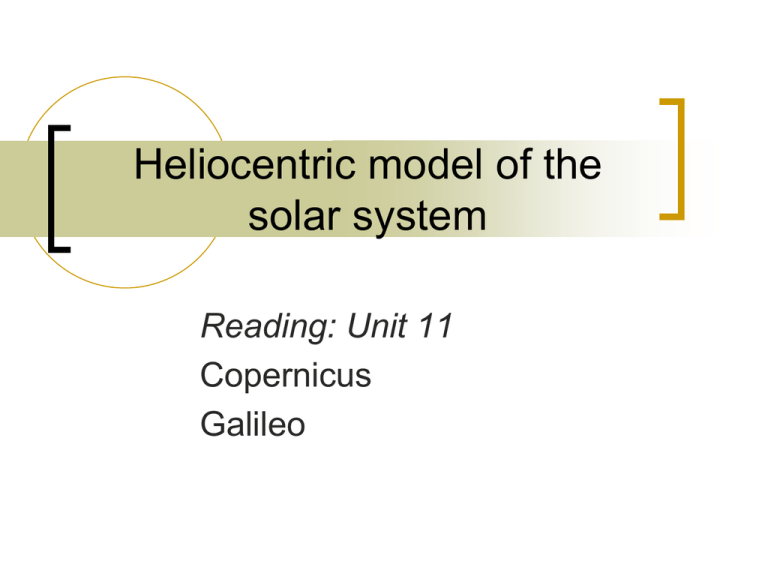
Heliocentric model of the solar system Reading: Unit 11 Copernicus Galileo Ptolemy’s geocentric model Endured for nearly 1400 years! Ockham’s razor All things being equal, the simplest solution tends to be the best one Nicolaus Copernicus (1473-1543) Heliocentric model All orbits are circular Sun is at the center Stars do not move (with respect to each other) Scientific method Observe phenomenon Hypothesize cause (how?) Predict outcome Test outcome Not established until 17th century! Galileo Galilei (1564-1642) Galileo did some really cool stuff Built his own telescopes! Found 4 moons around Jupiter The Milky way was composed of stars Found mountains on the moon Observed sunspots Saw phases of Venus Phases of Venus The Ptolemaic and Copernican models make very different predictions about the phases of Venus. U. Tenn. Physics & Astronomy Dept. Phases of Venus Galileo’s drawings of the phases of Venus Phases of Venus Starry Messenger Sunspots, and the Moon What do these have to do with the Copernican or Ptolemaic models? Apparently nothing, but... The philosophy that went with the Ptolemaic system expected the Sun, moon, planets and stars to be perfect. Heavenly bodies were expected to be entirely different in character from Earth. Sunspots, and the Moon Armagh Observatory António Cidadão The “Galileo Affair” Galileo the pope that the heliocentric model was correct (He had to take it back) Home arrest for many years Heliocentric model Tycho Brahe (1546-1601) Famous for his accurate observations of the motions of the planets. Brahe Planetarium Tycho’s model Sun orbits Earth Other planets orbit Sun Summary Copernican model Galileo’s evidence Tycho Team Activity #14 Phases of Venus Draw sketches (top then bottom) on page 211 before answering question #1!! Pick up a review sheet
